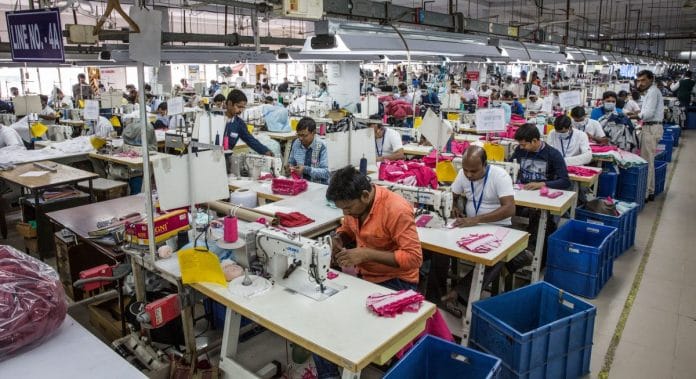Modi government says National Statistical Commission members didn’t express any concerns over its functioning.
New Delhi: The Modi government Wednesday indicated that it is unlikely to release the jobs data anytime soon while refuting reports that it had bypassed the National Statistical Commission (NSC) on several issues, including the release of the GDP back-series data.
In its statement, the government also said that the commission had not expressed any concerns over its functioning to the ministry.
The Modi government statement comes after the only two remaining independent members of the NSC — acting chairman and a career statistician P.C. Mohanan and Delhi School of Economics professor J.V. Meenakshi — resigned Monday, casting a shadow on the sanctity of India’s data releases.
On Wednesday, Mohanan said that the commission was rendered “ineffective” by the government’s actions.
One of the major grievances of the outgoing members was that the government had held off on releasing the annual survey of employment and unemployment for the year 2017-18 collated through periodic labour force surveys.
The report was approved by the NSC in December 2018 and was sent to the Ministry of Statistics and Programme Implementation (MoSPI) for release.
‘No jobs data in current form’
In its statement Wednesday, the government indicated that it will not release the report in its current form.
“NSSO (National Sample Survey Office) is processing the quarterly data for the period July 2017 to December 2018 and the report will be released thereafter,” said MoSPI .
The jobs data for the fiscal 2017-18 would have shown job losses as a consequence of demonetisation in November 2016, thereby reflecting negatively on the government, said sources. This could have been used as ammunition by Opposition parties who have consistently questioned the track record of the Narendra Modi government in the upcoming general elections, they added.
Periodic labour force surveys were launched in April 2017 and were aimed at providing reliable job level data. The survey would have provided annual estimates for both rural and urban areas for major parameters such as labour force participation rate, worker population ratio, unemployment rate, distribution of workers by industry, occupation, workers employed in informal sector and conditions of employment of the workers.
It would have also provided quarterly estimates for urban areas for parameters such as labour force participation rate, worker population ratio and unemployment rate using the current weekly status method.
Also read: Jobs, GDP, rules, Modi govt ignored us on everything — expert who quit statistics panel
GDP data
The ministry said that the NSC members had not expressed any concerns over the functioning of the commission to MoSPI, including release of the labour force survey results and the GDP back-series, in its meetings.
MoSPI said that the commission had itself urged it to finalise and release back-series GDP data.
“The official estimates of the Back Series of GDP were accordingly computed using the methodology adopted in the 2011-12 Base Year series and this was approved by the experts in the Advisory Committee on National Accounts Statistics, which is the appropriate body. This was later discussed in the National Statistical Commission,” the clarification said.
The back-series data released by the government in November 2018 had drastically revised downwards the growth numbers during the tenure of the Congress-led United Progressive Alliance government.
The data showed that the Indian economy grew at an average of only 6.67 per cent in the nine years through 31 March 2014 (UPA tenure), slower than the 7.35 per cent achieved in the four years through 31 March 2018 (NDA tenure).
In doing so, the government completely disregarded a report of the sub-committee of NSC headed by N.R. Bhanumurthy, a professor at the National Institute of Public Finance and Policy.
The commission’s back-series calculation showed that the Indian economy grew at a much faster pace during UPA’s tenure and registered double-digit growth in two years — 10.23 per cent in 2007-08 and 10.78 per cent in 2010-11.
Also read: Govt’s ‘malicious negligence’ to blame for National Statistical Commission resignations: Chidambaram
Criticism over resignations
After the resignations of Mohanan and Meenakshi, Opposition parties have been quick to criticise the government.
Congress leader and former finance minister P. Chidambaram lashed out at the government in a series of tweets Wednesday.
“One more venerable institution died on 29 January 2019 owing to malicious negligence by the government,” Chidambaram said.
One more venerable institution died on 29 January 2019 owing to malicious negligence by the government.
— P. Chidambaram (@PChidambaram_IN) January 30, 2019
“We mourn the death of the National Statistical Commission and remember with gratitude its valiant fight to release untainted GDP data and employment data,” he added.
We mourn the death of the National Statistical Commission and remember with gratitude its valiant fight to release untainted GDP data and employment data.
— P. Chidambaram (@PChidambaram_IN) January 30, 2019
May the NSC rest in peace until it is re-born again!
— P. Chidambaram (@PChidambaram_IN) January 30, 2019







If politics is at least partly a matter of perception, that battle will be lost through these steps.